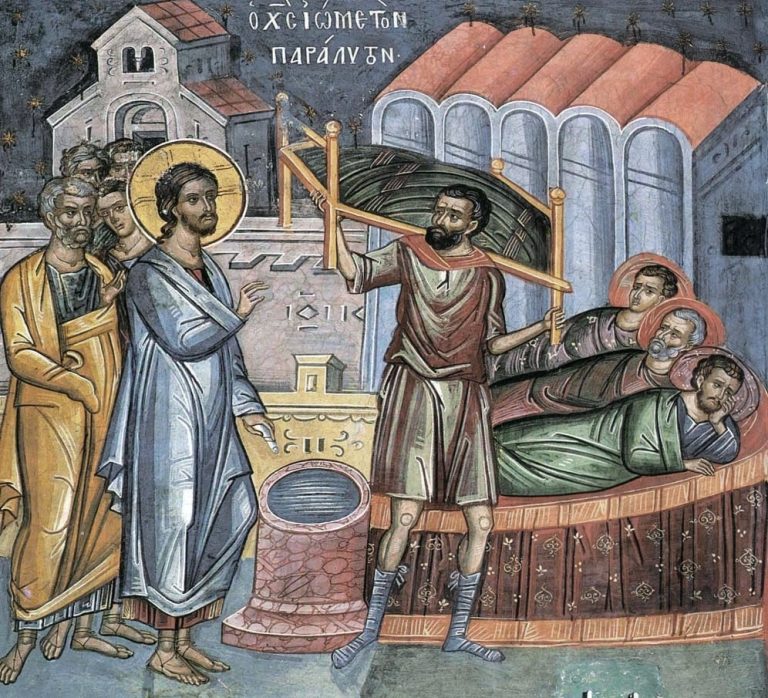I was reminded of that incident from the Gospel according to John about the healed sick man in the bath in Vitezda. A man who bore his physical infirmity for more than 38 years (a lifetime in those days) awaiting healing. And it is not so much the miracle that the Savior performs over him that impresses me whenever I think of this biblical story as the conversation between Christ and the sick. A short but unusual dialogue. As Jesus approached him, he asked him, “Do you want to be healed?”, He does not receive the definite and expected answer: “Yes, Lord, I want to be healed.” The man who has suffered from a serious illness for most of his conscious life points to a completely different problem, which is much more serious than physical infirmity: “I don’t have a person to let me down in the bath when the water moves. “This answer significantly shifts the focus from the topic of illness and healing, bringing us to the question of the other and, more precisely, its absence.
Loneliness is a much heavier sentence than physical infirmity. We very rarely think that the people around us do not just feel hungry for food, need for clothes, medical care, they feel the need for a person, for a living personal presence, for communication and understanding. And when a person is absent, missing, absent, his place is very easily replaced by disability, illness, suffering, which fills the daily life and the life of the loner. The patient of the Gospel story not only has no helper to lower him into the healing spring, he has no one and his life is limited by the hope no longer of healing, but of a man who will come and share his suffering, to alleviate his sorrow, to give meaning to his life. An endless and painful anticipation bordering on despair. Life without the other / others is a life in timelessness and weightlessness. The thought of sickness and death as a way out and escape from loneliness settles in the mind of the lonely person.
And here, in the face of the patient of the Gospel story, we can recognize dozens of people around us, who we see every day, who we formally respect and indifferently pass by, for whose suffering we do not want to take responsibility because we are always in a hurry (home, television, the Internet, social networks and mobile applications), and this will burden us. As a matter of protocol, we reach for the small coins in our pockets, for the insignificant donation SMSs, for the supposed charity, which seems to satisfy our sense of fulfilled civic and Christian duty.
And we do this quickly and almost covertly, so as not to reach our consciousness and conscience that this is something so insignificant that we are too far from the people who beg or are in a dead end, from their real problems, from their immediate daily needs that these are people who are above all alone, left to the whims of fate. We justify ourselves with a lack of opportunities, as if only money can solve problems, and only if we have them in abundance and surplus.
And these people are around us. Expecting not so small helper “sacrifices”, not a bag of food or a warm sweater, await us – to enter their lives, to share their grief, suffering, loneliness, to fill the void that gapes in them. And that could be a sick neighbor, a cripple selling flowers to the subway, a widow upstairs, a beggar in front of a supermarket, a child without parents raised by his grandmother. They do not have a person, not just to feed them, to clothe them, to pay their bills, they do not have a person whose presence can displace illness, suffering, loneliness, despondency. And we cannot justify the lack of large financial resources when we see people around us whose needs are not measured only in material values.
We do not need finances for this change, nor, if we receive them, will we necessarily be adequate in compassion. If today we do not speak the language of the sick, the suffering, those who need help, attention, comfort, what guarantees us that when we have the financial resources, we will speak their language? Won’t the gap between us then widen?
Today we are called to continue the dialogue between Christ and the sick Knight with the question “Do you want not to be alone?” If we really perceive ourselves as people striving to lead a Christian life, we should not be afraid to ask this question, and not only to ask it, but to continue the dialogue according to the needs of our interlocutor. And are we capable?









